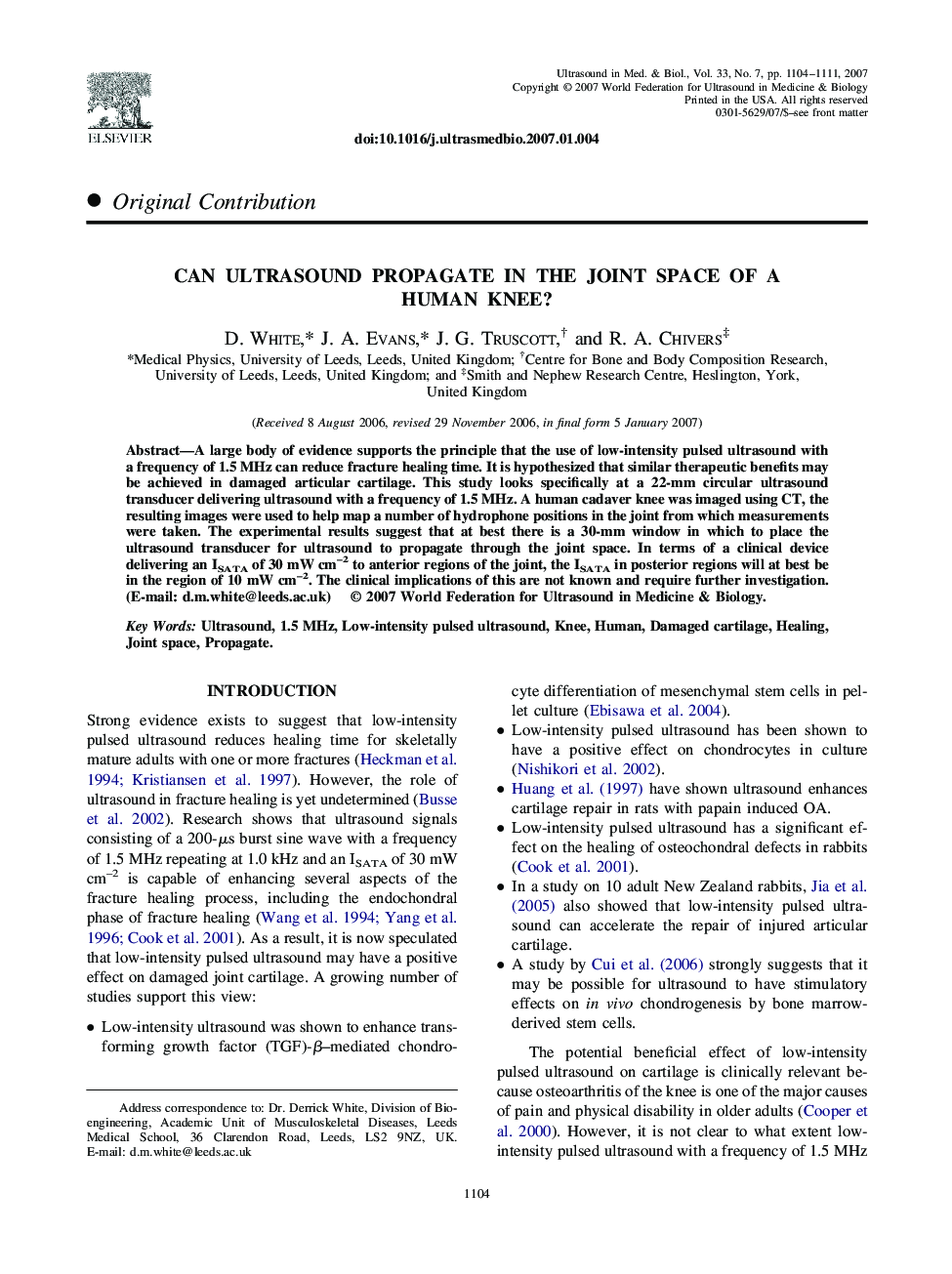| Article ID | Journal | Published Year | Pages | File Type |
|---|---|---|---|---|
| 1762926 | Ultrasound in Medicine & Biology | 2007 | 8 Pages |
Abstract
A large body of evidence supports the principle that the use of low-intensity pulsed ultrasound with a frequency of 1.5 MHz can reduce fracture healing time. It is hypothesized that similar therapeutic benefits may be achieved in damaged articular cartilage. This study looks specifically at a 22-mm circular ultrasound transducer delivering ultrasound with a frequency of 1.5 MHz. A human cadaver knee was imaged using CT, the resulting images were used to help map a number of hydrophone positions in the joint from which measurements were taken. The experimental results suggest that at best there is a 30-mm window in which to place the ultrasound transducer for ultrasound to propagate through the joint space. In terms of a clinical device delivering an ISATA of 30 mW cm-2 to anterior regions of the joint, the ISATA in posterior regions will at best be in the region of 10 mW cm-2. The clinical implications of this are not known and require further investigation. (E-mail: d.m.white@leeds.ac.uk)
Related Topics
Physical Sciences and Engineering
Physics and Astronomy
Acoustics and Ultrasonics
Authors
D. White, J.A. Evans, J.G. Truscott, R.A. Chivers,
